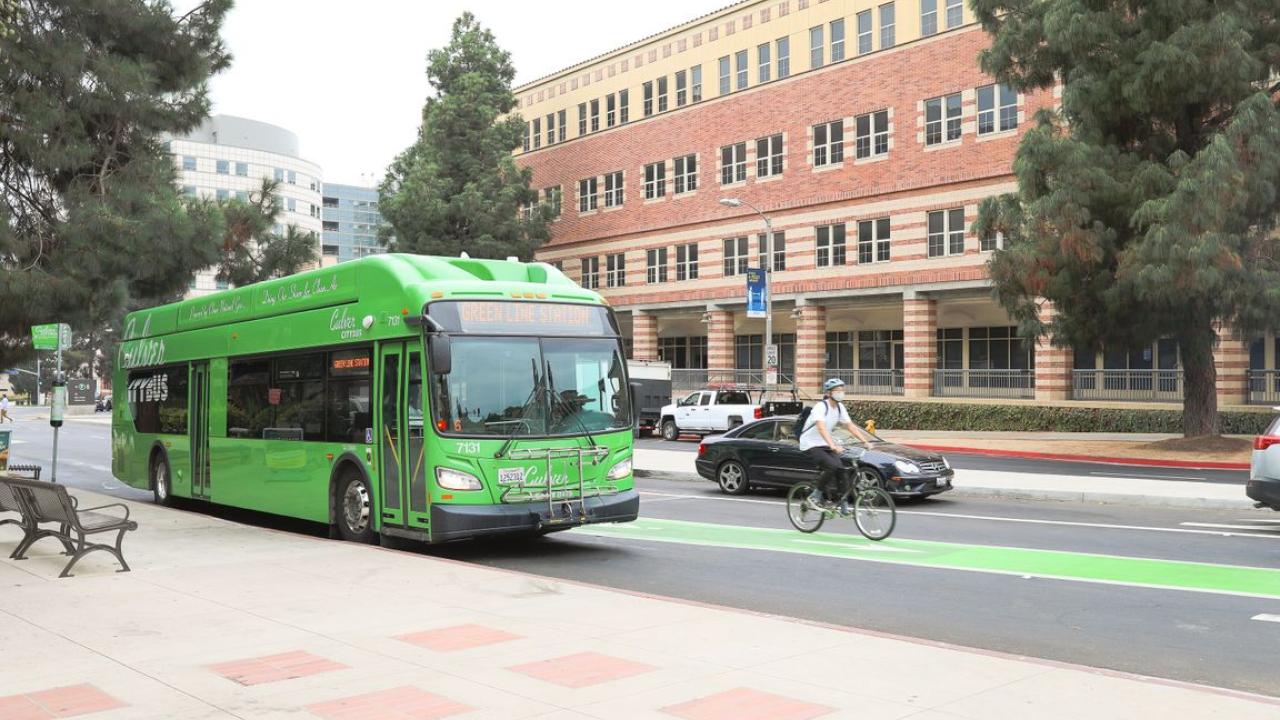The COVID-19 pandemic changed commuting patterns across campus, with the number of daily commuters coming to UCLA dropping from 67,000 in 2019 to a little over 19,000 in 2020. During this time, UCLA Transportation took full advantage of opportunities to learn and change practices to make commuting and transportation more sustainable.
A key finding brought to light by a new UCLA Transportation report has the potential to reduce greenhouse gas emissions by 1.73 metric tons each year per commuter who remains on a hybrid, commuting two or three times a week, or fully remote work plan. Sticking to telecommuting also helps to manage parking demand.
Beyond maximizing telecommuting potential, UCLA Transportation implemented a few new projects and programs for those who were still coming to campus. To improve the top university fleet in the nation, UCLA Transportation added three new zero-emissions vehicles. The steady conversion to alternative fuel sources saves nearly 5,000 gallons of fuel and an estimated 71.17 metric tons of carbon dioxide per year. Additionally, UCLA Transportation partnered with EVgo to install Level-3 fast-charging stations — these stations can power up to 90 miles with only a 30-minute charge. Campus was also made more bike-friendly with the improvement of bike lanes on roads and a new graduate student bike rental program which offers free bike rental at various student housing locations. Graduate students can also now take advantage of the Bruin Grad Pass, which allows them to take unlimited bus and rail rides through Los Angeles for free.
Learn more about UCLA Transportation and their sustainability initiatives at UCLA Newsroom.





